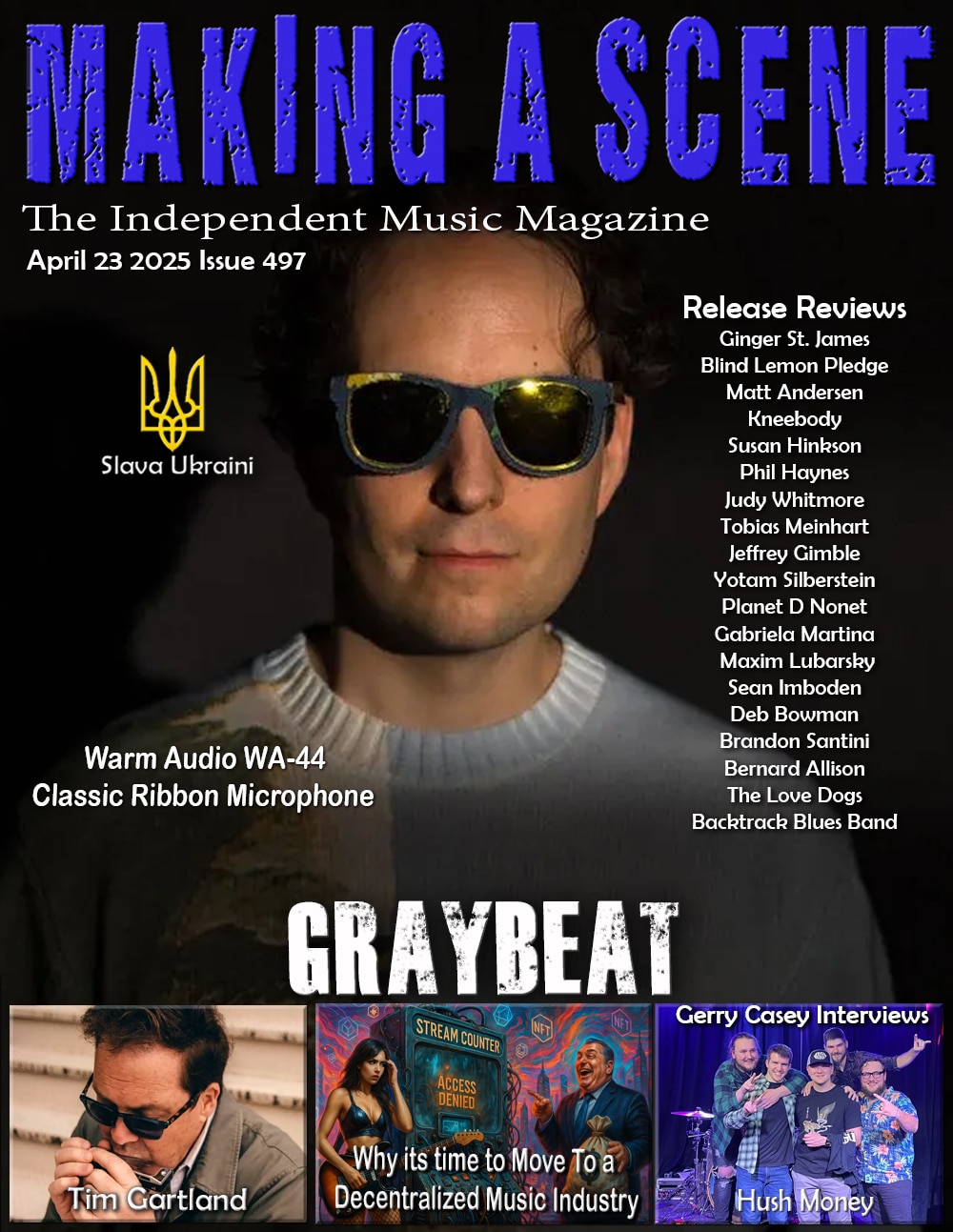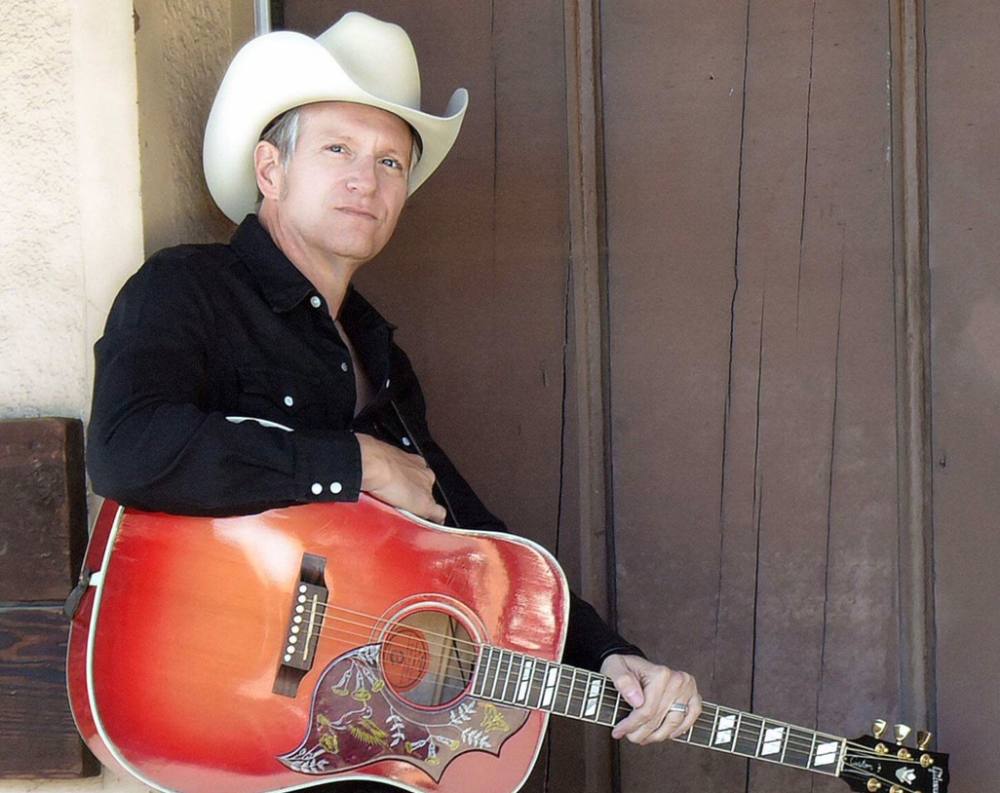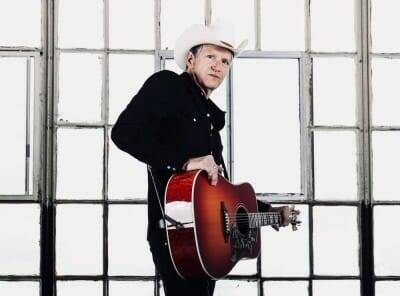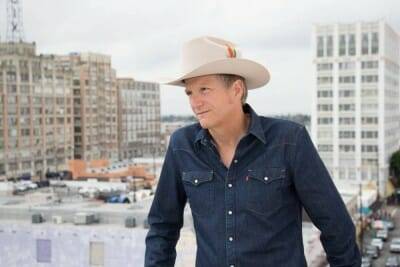John Surge is Making a Scene
HOME PAGE
Making A Scene Presents an Interview with John Surge
Years before John Surge launched his songwriting career — first as a member of power-pop bands and later as the frontman of his own country-leaning solo band, John Surge and the Haymakers — the musician grew up outside of Los Angeles. It was the early 1980s, and L.A. was a beacon for DIY-minded artists looking to create their own kind of SoCal roots music. Surge made regular trips into the city, catching shows and absorbing the diverse sounds that would eventually inspire the Haymakers’ debut.
“It was a melding of punk, power pop, Paisley Underground, and roots music, and I’d go see it all,” he says of those days in Los Angeles, rattling off a string of favorites — including Rank and File, the Long Ryders, and Lone Justice — whose music blended country twang with fresh, fierce energy. Decades later, he plants his flag in similar territory with John Surge and the Haymakers’ Your Wonderful Life, a debut album that reintroduces Surge as a country-rock bandleader and sharp storyteller.
If Tom Petty had been raised on Bakersfield classics rather than the Byrds, his songs might have laid the foundation for Your Wonderful Life’s mix of West Coast country and roadhouse rock & roll. Instead, Surge sources his musical inspiration from those seminal concert experiences of the early-’80s, resulting in a diverse album that breathes new life into older traditions. These nine songs are stacked with pop hooks, jangly guitar riffs, layered harmonies, and lyrics that shine a smoggy light on the modern-day American experience, using California — its cities, interstates, barrooms, and studio apartments — as stand-in for the country at large. It’s an album about weathered characters who refuse to lose momentum, delivered by a lifelong musician who’s logged plenty of highway miles.
John Surge and the Haymakers formed during the summer of 2016. Previously, Surge had been swapping Everly Brothers-worthy harmonies with another songwriter as a band of the roots-influenced duo Haymaker. When his partner quit, Surge found himself without a band for the first time in years. “I’d never put my name on anything before,” he remembers, “so I decided to try it.” He connected with amazing, versatile guitarist Randy Volin. “He’s like my Mike Campbell,” says Surge and he traded in his Telecaster electric for a Gibson acoustic. They filled out the band’s lineup with Simon Runge on drums and Alex U’ren on bass, and played everywhere and anywhere around L.A. for two years. “We were just having fun and creating a sound,” says Surge. And people responded.
Boosted by the response they received, the band began recording Your Wonderful Life at the Sonic Boom Room in Venice, with Kevin Jarvis — brother of guitar legend Duane Jarvis — serving as producer and engineer. Other mainstays of the Los Angeles roots community lent their help to the album, including pedal steel guitarist Marty Rifkin (Bruce Springsteen’s Western Stars), bass player Steve Nelson (Pete Anderson), harmony singer KP Hawthorn (Calico, the HawtThorns), and keyboardist Carl Byron (Anne McCue, Jim Lauderdale).
From the kickoff track “Ricochet” — whose anthemic guitar strums and deep-seated riffs evoke the Traveling Wilburys one minute and Dwight Yoakam the next — to the atmospheric, lushly layered closer, “Long Enough,” they created an album that’s at once fresh and familiar, turning Surge’s influences into something original. There are highway love songs (“Barstow to Baker”), classic-minded country tracks (“You’re Really Good [At Meeting Me Feel Bad”]), and tunes that examine current events with a mixture of black humor and honky-tonk swagger (“Studio Apartment Blues,” an updated version of the Beat Farmers’ “Gun Sale at the Church”). Throughout it all, John Surge steers the ship like a weathered captain who’s nowhere near finished with the thrill of the journey.
“I’ve rediscovered my love for the seminal bands I spent many nights seeing in small LA clubs,” he says, “and I’m taking renewed inspiration from how great they were. In my own small way, I want to carry on and honor that LA roots tradition.”
Discover more from Making A Scene!
Subscribe to get the latest posts sent to your email.























































